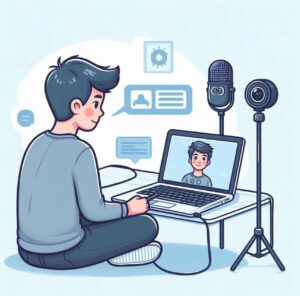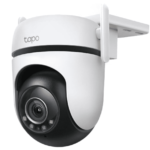
How to prepare for a video interview?
What are the dos and don’ts of video interviews? In the age of technology, video and phone interviews are becoming more common and convenient for both employers and job seekers. They can save time, money, and travel expenses and are more flexible and accessible. In the same way, they can also open up more opportunities for remote work and global collaboration.
But video and phone interviews also come with their challenges and pitfalls. They can be affected by technical issues, environmental distractions, and communication barriers, as they require different skills and strategies than face-to-face interviews.
Today, you will learn the dos and don’ts of video interviews to better prepare for a successful outcome.
✅ Test your equipment and connection.

- First, before the interview, prepare a reliable device that you have, such as a laptop, tablet, or smartphone, that can run the video or phone software smoothly.
- Next, remember to check your camera, microphone, speakers, and headphones to ensure they work.
- Then, test your internet connection and make sure it is fast and stable. You can also use tools like Speedtest or Skype Test Call to check your speed and sound quality.
- Finally, have a backup device or plan if something goes wrong during the interview.
❌ Don’t use an unprofessional username or email address.
When you sign up for a video or phone service like Zoom, Skype, or Google Meet, use a professional username or email address that reflects your name and identity. Avoid using nicknames, slang, or inappropriate words that might give a negative impression to the interviewer. For example, use something like [email protected] instead of [email protected]. Choose a picture that is clear, well-lit, and free of distractions.
✅ Choose a suitable location.

- Find a quiet, comfortable, and well-lit place for an interview without interruptions or distractions. Avoid noisy, crowded, or messy, such as cafes, parks, or your bedroom.
- Ideally, choose a place with a neutral background, such as a wall or a bookshelf, that does not reveal too much personal information or clutter.
- Also, have enough space to move around and gesture naturally.
- Remember to inform anyone around you that you have an important interview and ask them not to disturb you.
❌ Don’t forget to dress in a neat, clean, and well-fitting way.
Even though you are not meeting the interviewer in person, you should dress professionally and appropriately for the job. It shows that you respect the interviewer and take the opportunity seriously. Importantly, avoid wearing anything too casual, revealing, flashy, or distracting, such as jeans, t-shirts, shorts, tank tops, hats, sunglasses, or jewelry. Choose something comfortable, clean, and fits well. Also, pay attention to your grooming and hygiene. Similarly, make your hair neat, your face clean, and your teeth brushed.
✅ Research the company and the job.

- Before the interview, research the company and the job you are applying for. Learn about their mission, vision, values, goals, products, services, customers, competitors, and culture.
- Also, check the job description and requirements and how your skills, experience, and personality match them.
- Then, prepare some questions to ask the interviewer about the company or the job. It shows that you are interested, informed, and enthusiastic.
❌ Don’t be late or unprepared.
Being late is one of the worst things you can do in an interview. Seriously?! It is disrespectful, irresponsible, and unprofessional. So, confirm the date, time, and platform in advance. So, set a reminder on your phone or calendar to alert you before the interview. Log in to the video or phone service at least 10 minutes before the scheduled time to check everything is fine. Remember to have a copy of your resume, cover letter, portfolio, or any other documents ready to share with the interviewer.
✅ Smile and make eye contact.

Be friendly and approachable. Importantly, maintain eye contact on a video call. So, look at the camera instead of the screen. It will make it seem like you are looking directly at the interviewer. Also, to smile naturally, think of something positive or funny before the interview. Hence, it will help you relax and feel more comfortable.
❌ Don’t interrupt or talk over the interviewer.
One of the challenges of video and phone interviews is that there might be some delays or glitches in communication. Undoubtedly, it can cause awkward moments when you or the interviewer might interrupt or talk over each other unintentionally. To avoid this problem, listen carefully to what the interviewer is saying and wait for a pause before you respond. If you accidentally interrupt or talk over the interviewer, apologize and let them finish.
✅ Use the STAR method to answer questions.
Behavioral or situational questions are among the most common questions in an interview. An example is when the interviewer asks you to describe a specific situation from your experience that demonstrates your skills or abilities for the job. For instance, they might ask you to tell them when you solved a problem, handled a conflict, led a team, or achieved a goal. To answer these questions effectively, use the STAR method, which stands for Situation, Task, Action, and Result.
- Situation. Describe the situation or context of the example. Where and when did it happen? Who was involved? What was the challenge or problem?
- Task. Narrate the task or goal that you had to accomplish or achieve. What was your role and responsibility? Also, what did you want to do or change?
- Action. Recount the steps you took to complete the task or solve the problem. What did you do and why? How did you use your skills or abilities?
- Result. Share the result or outcome of your action. What did you achieve or accomplish? How did you measure your success? What did you learn or improve?
Using the STAR method will help you provide specific and relevant examples that showcase your strengths and potential for the job.
❌ Don’t lie or exaggerate.
Telling a lie or exaggerating your skills, experience, or achievements is one of the worst things you can do in an interview. It can backfire on you in many ways. For example, the interviewer might catch you in a lie by asking follow-up questions, checking your references, or verifying your information. Also, it will ruin your credibility and reputation and disqualify you from the job. Even if you get away with a lie in the interview, you might face difficulties later if you are hired and expected to perform tasks beyond your capabilities. Therefore, be honest and realistic about what you can offer and what you want from the job.
✅ Follow up after the interview.

- After the interview, remember to follow up with the interviewer and thank them for their time and consideration.
- Moreover, send them an email or a message within 24 hours of the interview. In your message, restate your interest and enthusiasm for the job, highlight your qualifications and strengths, address any concerns or questions they might have, and express your appreciation for the opportunity.
It should be noted that following up after the interview will show you are professional, courteous, and proactive.
❌ Don’t give up or lose hope.
- In the same way, keep hope if you get the job or hear back from the interviewer. Remember that many factors influence hiring decisions, such as budget, availability, competition, etc., which are beyond your control. Sometimes, it might take weeks or months before you get a response from the employer.
- Therefore, be patient and persistent in your job search. Keep your options open. There are many different jobs that you can do with your skills and interests.
- Keep improving your resume and interview skills.
- Also, keep networking and building connections with people who can help you find opportunities.
- Importantly, keep learning and growing as a professional.
In conclusion, video interviews are becoming more common and popular among employers and job seekers, especially during and after the COVID-19 pandemic. They offer many benefits, such as convenience, flexibility, cost-effectiveness, and access to a pool of candidates and opportunities. However, they also pose unique challenges and require special preparation. With these tips on the dos and don’ts of video interviews, you can make a great impression on the interviewer.
So don’t be afraid or intimidated by video or phone interviews. Instead, embrace and use them to your advantage. Be confident, honest, creative, and be yourself. You have what it takes to ace video or phone interviews and land your dream job.
We hope this article about the dos and don’ts of video interviews is helpful. If you have any questions or comments, feel free to leave them below. Also, you can check our YouTube videos for, interview Q&A, job-related videos. Thanks for reading, and I’ll see you at the next one! Good luck!



